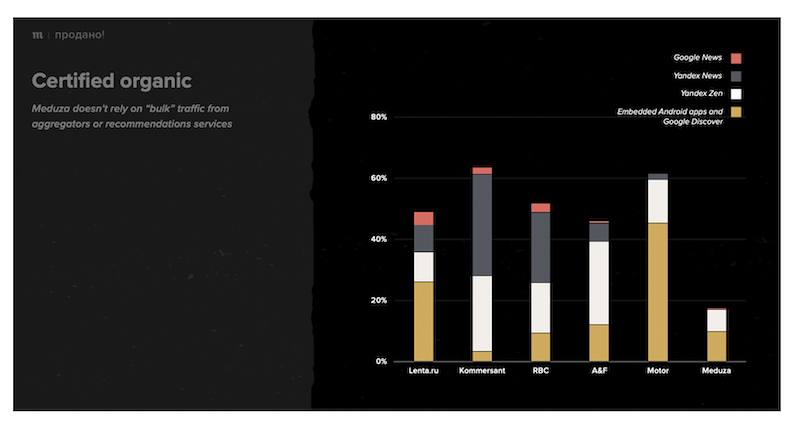Yandex News, known locally as Яндекс.Новости (Novosti), has been operating since the year 2000 and is the Yandex equivalent of Google News.
For a number of years, the platform has been at the center of a number of research studies and allegations that the Yandex News algorithm is politically biased, and this was probably at it’s fiercest between 2010 and 2014 when there were allegations of bias towards electoral fraud and the annexation of Crimea.
Yandex News is a prominent SERP feature, and during the 2022 incidents involving Ukraine, Yandex’s algorithms automatically triggered a “fake news” warning, you can see this here.
So with this question raised again, I’ve been delving into the depths of the internet to find as much information as possible, as well as running my own test, on potential biases in the news system. Where possible I have credited all research sources, and if I have missed someone or a piece you think should be included – please reach out and I’ll correct it as soon as possible.
So, without further adieu…
“Is Yandex News Politically Biased?” Reviewing The Research
At the start of 2017, Russia passed a federal law that made news aggregators themselves liable for spreading fake news, however, news items from registered media outlets (a state-regulated media category) are exempt from the liability.
Meaning, reading between the lines, news items published by state-regulated media outlets don’t fall under the “fake news” law, so aggregating anything from these outlets whether it’s fake or not “is fine”, but publishing fake news from other media publishers does fall under liable.
Mariëlle Wijermars published a study in 2021 arguing that this federal law:
Created a mechanism of indirect media control enabling the Russian state to influence online news dissemination through existing media regulation structures
In March 2017 there were a number of mass protests across Russia, including thousands of citizens, showing their opposition and discontent towards the Government. These protests were triggered by a YouTube video posted by Alexey Navalny against Dmitry Medvedev.
This was the largest protest movement to take place since 2011/2012, but didn’t appear at all as aggregated news with Yandex News.
Navalny screenshotted this “lack of news presence” and took it to Twitter.
This prompted a response by Yandex, and in this post – they covered how the Top 5 news stories are formed and gave this direct response to why the protests weren’t featured (also in the aforementioned link):
At the moment the action began – it started in the Far East – the event was not covered by all the media. As a result, in the first half of the day, stories were formed only from messages from small sources, and for some time, until about 12:15 Moscow time, their total weight was not enough to make the topic in the top 5.
This is despite the news being actively covered by Lenta, Tass, the BBC, Kommersant, and other news outlets.
In the post, Yandex also revealed that:
Since January 2017 Yandex News can only show materials published by media that are registered with Roskomnadzor on its home page, in topics, and in thematic rubrics.
Aka, on its most prominent, visual screens.
Yandex’s post and comments suggest that the lack of references to the rallies from their top recommendations was, at least in part, the result of the Roskomnadzor and the enforced federal law.
So, with this in mind, let’s take a look at the Russian “censorship” list. Some sources and publications claim up to four different censorship lists operating at State/Oblast level.
Introduced in 2012, the original objective was to prevent access to illegal adult content, drug production and distribution, and anything regarding self-harm. This was then extended to cover “prohibited information” and this included anything deemed to be “an incitement to illegal action”, or the “promotion of extremism”.
In 2014, this was then also used to block opposition websites, as well as the LiveJournal blog of opposition leader Alexey Navalny.
This list is maintained by the Roskomnadzor, and websites on this list are “removed” from surfacing in Yandex.
So given the blacklist, why the need to introduce the liability law at the start of 2017? Well, there is a back story here…
Yandex.News came under the fierce political spotlight following the annexation of Crimea, in which it covered all news. This led to a statement from Putin.
Putin declared that Yandex had begun as a project under Western influence, and that the Internet in general was a “special CIA project
Sources on the above statement:
- https://www.themoscowtimes.com/2014/04/24/putin-says-cia-created-the-internet-cites-foreign-influence-at-yandex-a34639
- https://www.theguardian.com/world/2014/apr/24/vladimir-putin-web-breakup-internet-cia
- https://www.newyorker.com/news/news-desk/putins-fear-of-the-internet
- https://www.aljazeera.com/news/2014/4/25/putin-says-internet-is-a-cia-project
In May 2014, Putin’s press secretary, Dmitry Peskov, declared that Yandex.News should be registered as a mass media outlet, which would put it under the control of Roskomnadzor.
This then lead to the aggregator liability federal law.
Whilst it isn’t publicly disclosed, research studies have since shown that in 2020 only fourteen news outlets have surfaced, all of which are approved (licensed) media outlets, authorized by the Roskomnadzor.
The impact on potential regulation can be found in a media kit published by Meduza. I’ve included the image below, but the original link with the PDF now doesn’t resolve: https://meduza.io/static/ads/mediakit-eng.pdf


So, from a technical standpoint, the Yandex.News algorithm isn’t politically biased – it does however abide by the legislations of Russia, regarding media and news aggregators.









Leave a Reply